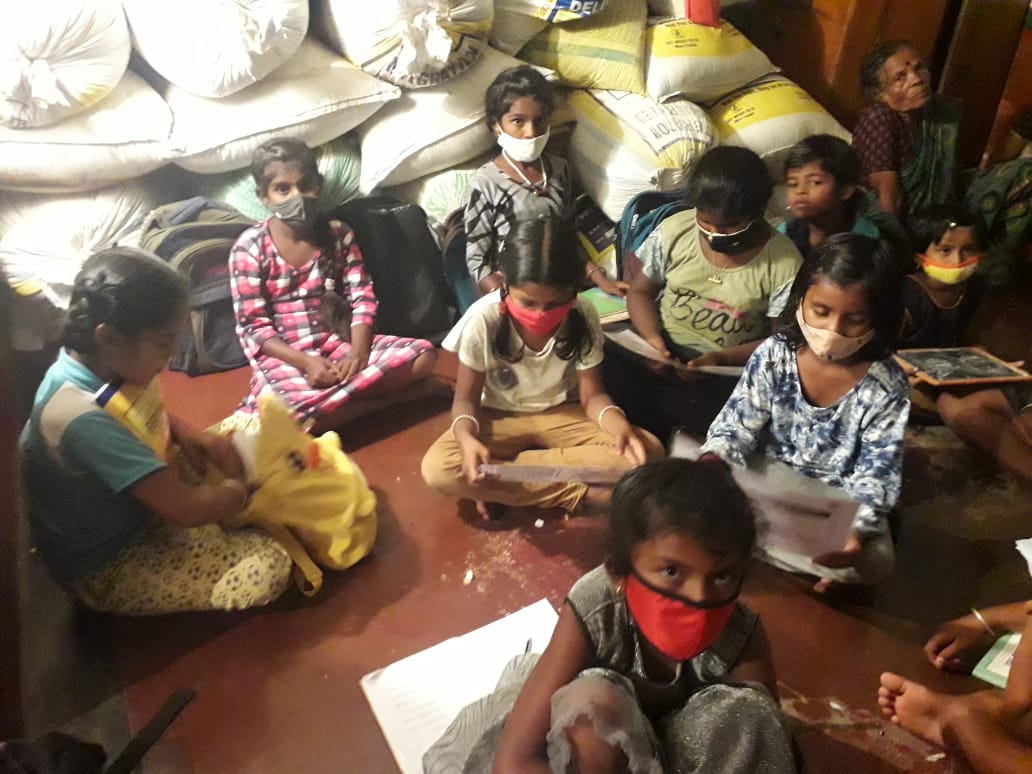Karnataka: Degree students address learning loss among children, conduct bridge courses
Reshma Ravishanker
Facilitated by a Bengaluru-based child rights organization, Child Rights Trust, a group of degree students in Karnataka has commenced workshops in rural parts of the state for school-going children to address their learning loss while also conducting activities to keep them prepared to attend in-person classes post-pandemic.
Every evening, at a remote village Kudupakunte in Karnataka’s Sidlaghatta Taluk, a street turns into a classroom for about 10 students. They assemble, all masked, seated at a safe social distance, armed with books. Unmindful of the odds, these children squat right on the road and enthusiastically read from their texts while K R Varshini, a second-year engineering student, does rounds overseeing these students.
Varshini is among the several other degree students who have volunteered to work with the Child Rights Trust, teaching students from classes I to V in the absence of physical classes in government schools, ensuring continued access to education.
The younger children are taught writing alphabets and numbers while those in the higher classes are taught to read sentences. “I heard about the requirement for volunteers from a nearby Anganwadi. There is only one temple in the vicinity that can be called a public place. But parents fear sending their children there because it is outside the village. Hence I began classes in front of my house. Mostly the underprivileged children come. I help them fill worksheets given in schools, give them assignments and also conduct activities that they miss because of schools going online. Most of these childrens’ parents are uneducated and cannot help them. That is where I step in,” she explained. Students like her work 2-3 hours a day for 5 days a week to make up for the learning loss of children.
Muneendra V S who is pursuing his first-year MA student from Chikkaballapura teaches students in his home town Kuthandahalli. “The activities include drawing, playing games, besides revising the previous year’s syllabus if the child has forgotten it. I conduct classes for 15 of them on the terrace of my house where they are seated apart from each other. We not only ensure that the learning loss due to shuttering of schools for two years has been made up for but also help them be prepared once school starts. Indulging them in such activities will familiarise them with conventional schooling activities,” he added.
 The initiative, ‘Vidyasaathi’ is supported by India Literacy Project. Nagasimha Rao, from the Child Rights Trust said, “This is a bridge course for children. For this, we visited villages, spoke to youngsters, and have picked 25 volunteers who are willing to spend time with children. The degree students are given a stipend of Rs 1,000.”
The initiative, ‘Vidyasaathi’ is supported by India Literacy Project. Nagasimha Rao, from the Child Rights Trust said, “This is a bridge course for children. For this, we visited villages, spoke to youngsters, and have picked 25 volunteers who are willing to spend time with children. The degree students are given a stipend of Rs 1,000.”















Add comment